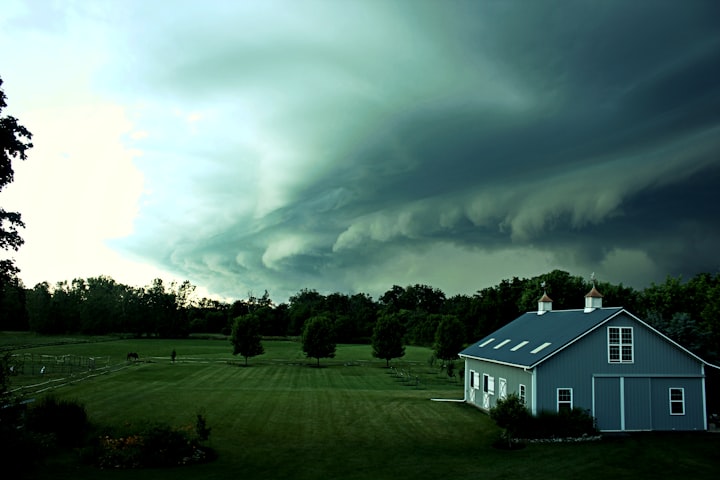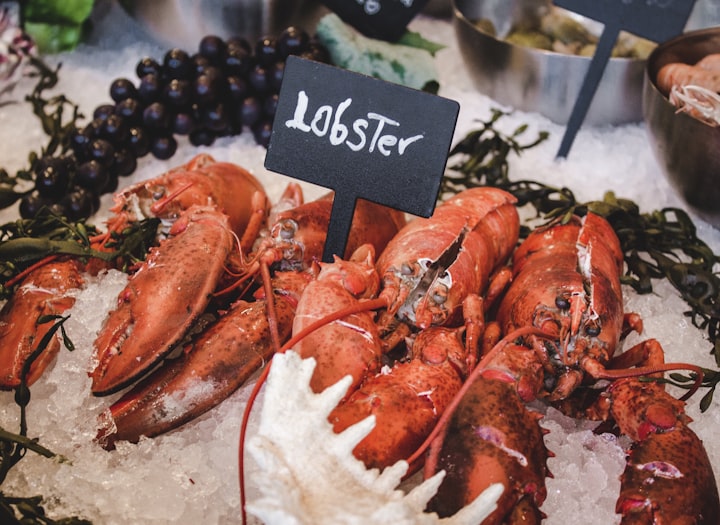
“Hand me another tile, Jenny,” my father asks as he repairs an addition on our roof in Hermantown, Minnesota. I am getting ready for a trip to California with my mother and grandmother. I am five years old and my father pays me five dollars for several sessions of work handing him tiles when he needs to nail another one to the roof. A giant satellite dish imposes itself next to our brick and wood home. This is my parents’ second home although technically I lived at their first home in a residential neighborhood of Duluth, near to where my grandmother lives.
We find ourselves eons away at the Holiday Inn San Diego, where I swim in my teal and black checkered two-piece. We visit Chinatown and I learn to use chopsticks. We go to the San Diego Zoo, petting dolphins and seeing whales raise water from their spouts. I mistakenly think that the Canadian nickel with the polar bear on it is the entrance token to the zoo, believing this for years afterwards. There my grandmother buys me a small pink swan with an ice-cool glass surface, which I lose in the dividing of her property after her death. I briefly meet my grandmother’s estranged father, who gives me smooth oranges from his tree. I am told that this man is my great-grandfather. I still have a photo of us; I am standing, holding oranges in a sepia filtered still. When my grandmother is young, her mother dies and she takes on the responsibility for raising her siblings. I hear that they used to hide in cabinets for fear of being hit by their drunk father. I do not understand the significance of this last trip. Years after, only one child attends his funeral.
My grandmother often cares for me and takes me to see films in Duluth, where we watch the early 90s movie “The Secret Garden.” When we walk out of the theater, the only way I feel I can speak is in a British accent. It is natural on my tongue, an accent I cannot perform as an adult--a feeling of regret reaches tucked passageways on my throat. She has a treasure trove of jewelry. I am allowed to play an extravagant game of dress up, experimenting with her perfume and makeup. I keep her small shell necklace, white and coiled shells twist into a golden spiral and on toward infinity. We are part Dutch and I also keep her pin, made of a scored wooden shoe, depicting a windmill. I also keep a kitsch item--a fur dog made of some type of velvet wire with dark black dots for the eyes and nose. I hold on to many bits and pieces of her; several parts of her assortments become mine.
Eight days after my parents marry with my maternal grandfather’s blessing, he dies on Halloween. This coincidence impresses upon my mother and as the years pass, she is increasingly uncomfortable with this holiday. Though one year she wraps boxes in holiday paper, cutting holes for the arms and a head. I scamper down the Duluth streets dressed as a present, gathering candy and discovering sweet liquid trapped in a wax shell. After this, she does not approach the holiday with the same fervor, never giving out candy or decorating for Halloween. Constantly fighting her mother when she is a teenager, she had been closest to her father. When my grandmother kicks her out of the house at seventeen, he tells her, “go before she changes her mind.”
The cutoff for Kindergarten is ten days before my birthday and so I am the among the eldest of my class. Attending preschool, I am in a circle with the other children learning to think back to Native American peoples who had entirely pioneered this savage Northern territory, now only a hundred and thirty years into her Minnesota statehood. Children have Scandinavian names like Erikson and or the brunt, throaty grunt of German or the slavic sound of Polish. We construct a wood and a painted brown teepee made of meat-packing paper folded on top of white and tan tiles, swirled and randomly lined and spotted like the solar system display in the recreation room of our school building.
The floor is lined with the kind of tiles which come in either blue, green, or white, and I imagine one company fulfilling an entire country's flooring needs. We wear ornate, handmade headpieces. Feathers fly as we dance, their brown paper bag vests port symbols only we can understand. My mind-scape turns to red, yellow and orange starbursts, Indian Paintbrushes in the grasses whose woods line the highway over which I travel through space. I have a sense of tranquility when I see them while riding slowly over the paved road at Brighton Beach along Lake Superior's rocky, volcanic shore. A particular agate is found here, made in gas pockets of molten lava which fill in with minerals like iron, quartz or calcite. My classmates and I make no distinction between work and play, rewarding ourselves simply, beautifully, by decorating these humble abodes.
There is a giant window in every room of my family’s house and a small one in the laundry room. I count the glass panes to calculate our chances of survival in case of an emergency. When an unanticipated tornado comes, my mother wants to drive to my grandmother’s place at the Château Apartments on London Road in Duluth. The cement building is free from the afternoon's tornado warnings but the impasse is too great. The green sky signals the tornado’s approach. We hide in the laundry room at the base of our spiral staircase, where I often notice my mother’s copy of Cat Stevens’ record, “Tea for the Tillerman.”
I am captivated by the animals, the man drinking tea and the orange balloon, which I see peering through the wrought iron metal bars of each step. This house holds memories that I experience through photos of events on weekends or holidays. Homemade birthday cakes sparkling with dripping candles. Lasagna that my mother cooks from scratch. Silvery, slippery, floating balloons. Wrapped gifts. Smiling aunts and uncles in an 80s-themed dining room befit with wallpaper showing farm machinery drawn in fine black ink against yellow-orange and olive vertical lines. Photos of the events show joy--cousins bunched up on a brown couch, candids of relaxed adults. Photos that expose a solecistic finger on the camera while a diaper is being changed.
My April 24th, 1984 sonogram photo shows the shape of my nose, though is otherwise difficult to read. Less than a year later, I take my real first steps, “not crawling at all but walking everywhere,” my mother writes, “Jennifer has been walking ‘full time’ for three weeks now. She’s been able to walk for a couple of months but was more interested in crawling.” I want to walk from then on. My favorite foods are “lasagna, pizza, French toast & cheese (especially lasagna!).” I am a happy child and when I cry, it’s never for very long. I do lack, however, a “firm grasp on the properties of gravity,” she writes. Known for getting into everything as a toddler, I am wild, “like a monkey,” my mother often remarks. She props cardboard boxes in front of outlets, giving me walls to climb and to dismantle. I climb onto the kitchen counter and eat Tylenol from the bottle I manage to open. I am rushed to the hospital to have my stomach pumped, though I only have to drink something in order to throw this up.
I have pinna disorder on my right ear, which means my right earlobe is misshapen. For this reason, I am not allowed to get my ears pierced. In first grade, we leave a potential surgeon’s office with no surgery scheduled. I am too hyperactive and the doctor says that I cannot sit still for the surgery. I see the doctor and my parents in shaded moments, laughing, and taking on and off my favorite teal and black-lacquered sunglasses. Later, at a family reunion, a distant cousin of mine was born without her hand. I learn that the defect is partly my doing. “See Jenny, she laid on her hand wrong,” my father says, “just like you laid on your ear wrong in your mother’s womb.”
As an infant, I nearly fall to my death through the steps of our spiral staircase. It is easy enough to see through the wrought-iron prison bars surrounding the gate to the basement below and I slip through the slits in the baby gate. My mother recounts that minutes pass before recognizing the source of my tiny whimpers. I am hanging on to the carpet between the stairs, having slipped underneath. When she does approach, my mother faces her greatest fear. You can fear death, and you can fear failure, but we do not choose our own demons. At different times, fear will paralyze either my mother or me. I wonder what the exchange looks like between my hands on the staircase and my mother’s hands. Hands that slip every day into grocery bag handles, door knobs or on steering wheels. Groceries fall and doorknobs fail to turn. Fenders bend. Our hands somehow meet, my mother’s and mine, and we become one person.
From this point on, if she moves, my death or serious disfigurement is almost certain due to the brick layer below. She does not pull me toward her from the space between the stairs. She calls for my father behind a closed door, mere feet away in the garage. She calls and calls. He does not answer. Finally, my father answers her calls. He grabs me, lifting me from my mother’s arms, and brings me upstairs.
Wordlessly, he sets me down. He goes back to the garage, to his car and then to the store. When he returns with a case of beer, he drinks them all until he says, “we need to sell this house.” My memory of this event is fragmented like a dream I cannot quite recall. I watch the scene told to me through each window, pieced together, and see myself against the forest as a tornado approaches. Above myself, I move over the yellow shag carpet and towards the laundry room. The windows shatter. I move up. I move on.





Comments
There are no comments for this story
Be the first to respond and start the conversation.